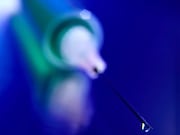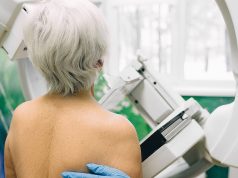But no significant between-group difference noted in measures of disability progression
FRIDAY, May 10, 2019 (HealthDay News) — For patients with aquaporin-4-immunoglobulin G-positive neuromyelitis optica spectrum disorder (NMOSD), eculizumab is associated with a lower risk for relapse, according to a study published online May 3 in the New England Journal of Medicine to coincide with the annual meeting of the American Academy of Neurology, held from May 4 to 10 in Philadelphia.
Sean J. Pittock, M.D., from the Mayo Clinic in Rochester, Minnesota, and colleagues conducted a randomized trial involving 143 adults with NMOSD who received either intravenous eculizumab or matched placebo in a 2:1 ratio. The primary end point was the first adjudicated relapse.
After 23 of the 24 prespecified adjudicated relapses, the trial was stopped given the uncertainty in estimating when the final event would occur. The researchers found that 3 percent of the eculizumab group and 43 percent of the placebo group had adjudicated relapses (hazard ratio, 0.06; 95 percent confidence interval, 0.02 to 0.20). The adjudicated annualized relapse rate was 0.02 and 0.35 in the eculizumab and placebo groups, respectively (rate ratio, 0.04; 95 percent confidence interval, 0.01 to 0.15). The mean change in the Expanded Disability Status Scale was −0.18 and 0.12 in the eculizumab and placebo groups, respectively (least-squares mean difference, −0.29; 95 percent confidence interval, −0.59 to 0.01).
“Since there was no significant between-group difference in measures of disability progression, the long-term effect of eculizumab in patients with NMOSD warrants further study,” the authors write.
Several authors disclosed financial ties to biopharmaceutical companies, including Alexion, which manufactures eculizumab and funded the study.
Copyright © 2019 HealthDay. All rights reserved.








